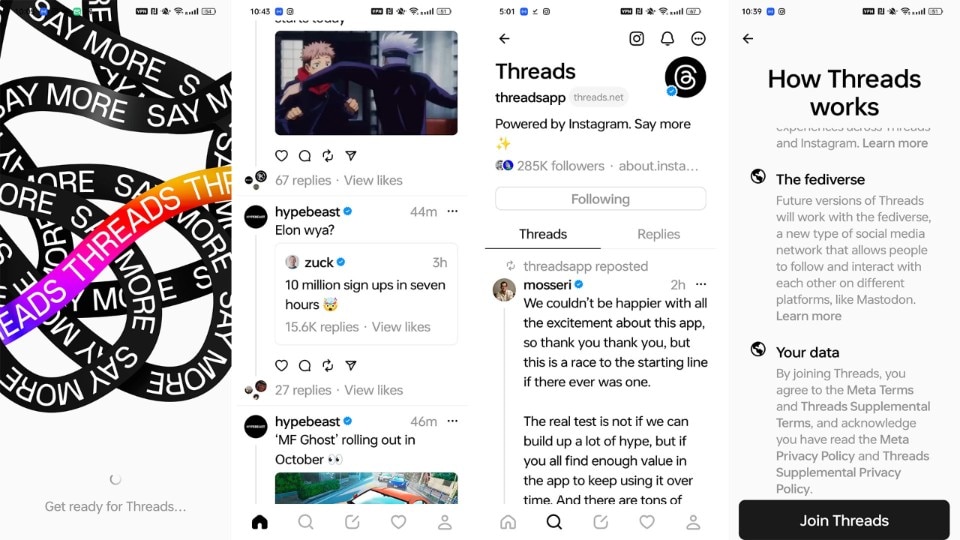Since Twitter passed into the hands of Elon Musk, its management has become a total mess. Features are being introduced and quickly withdrawn, paid verification badges are failing, restrictions on regular users are getting tighter, advertisers are fleeing, market value is plummeting, and much more: “If there’s ever been a more self-destructive owner of a multibillion-dollar enterprise who resents the very customers who determine the success of that enterprise, I am unaware of it”, said Lou Paskalis, the founder of AJL Advisory consulting firm.
There have been several attempts by various platforms to take advantage of the situation and become the “Twitter alternative” (as numerous media headlines have stated): from the small Mastodon to the historic Tumblr and even Bluesky, the project launched by Twitter founder Jack Dorsey himself. For various reasons, none of these platforms has succeeded so far, partly due to structural difficulties - especially in the case of Mastodon - in handling the hundreds of millions of users of the social network acquired by Musk in October 2022.
What may be huge numbers for some platforms are insignificant for others. This is the case for Meta, a company accustomed to managing nearly four billion users - spread across Facebook, Instagram and WhatsApp - which decided to take the plunge by announcing Threads on July 5: a new social media platform explicitly aimed at replacing Twitter, which has always been the place for meaningful conversations between entrepreneurs, celebrities, journalists, scientists and more, and where it is possible to follow real-time events worldwide.

According to the New York Times, Meta executives began discussing the possibility of “capitalizing on Twitter's chaos” toward the end of last year, explaining - as revealed in an internal memo - that “Twitter is in crisis, and Meta needs to regain its appeal.” Despite the difficulties of Facebook, which is in constant decline, and the underwhelming performance of the Metaverse, Meta can still rely on a colossal user base that, at least in theory, can be easily tapped by redirecting enough people to Threads, especially given the dissatisfaction of Twitter users.
The start seems promising: within a few hours, more than ten million people signed up for the platform, which was launched in about a hundred countries worldwide (excluding the European Union, where authorities have indicated that it does not currently comply with Community regulations). Of course, what happens in the first few days - when enthusiasts and early adopters flock to the latest novelty - is not indicative of long-term prospects. However, Meta may have found the right opportunity to fill the void that is rapidly forming within Twitter due to Musk's extremely confusing management.

Similar to the social network it aims to dethrone, Threads has a 500-character post limit, clearly prioritizes textual content, and even includes the retweet icon. However, Threads is closely tied to Instagram: not only is it accessed through an Instagram account, but it also incorporates some of Instagram's aesthetic elements and allows posts from Threads to be shared in Instagram Stories (the synergy with Instagram, but not with Facebook, is yet another sign of the latter's decline).
“It will take time, but I think there is a need for a public conversation app with over a billion users,” Zuckerberg wrote about Threads. “Twitter had the opportunity to do all this, but they missed it. Hopefully, we will succeed.” Meta's move is certainly significant, but it's unlikely to have a huge economic impact. While the comparison is imprecise in many ways, it's impossible not to notice that Twitter's revenue (expected to be 3 billion in 2023) is a fraction of the $116 billion Meta will generate in 2022.
For Mark Zuckerberg, this move is probably more about positioning and prestige. It is an attempt to replace Twitter as the preferred platform for political and media discourse, a move that has so far eluded him despite several attempts through Facebook.
This article was originally written at the launch of the app. From today, Meta brings it to Europe, including Italy.

The design of well-being according to Caimi
Two new products ensure the highest level of environmental well-being through acoustic insulation.


